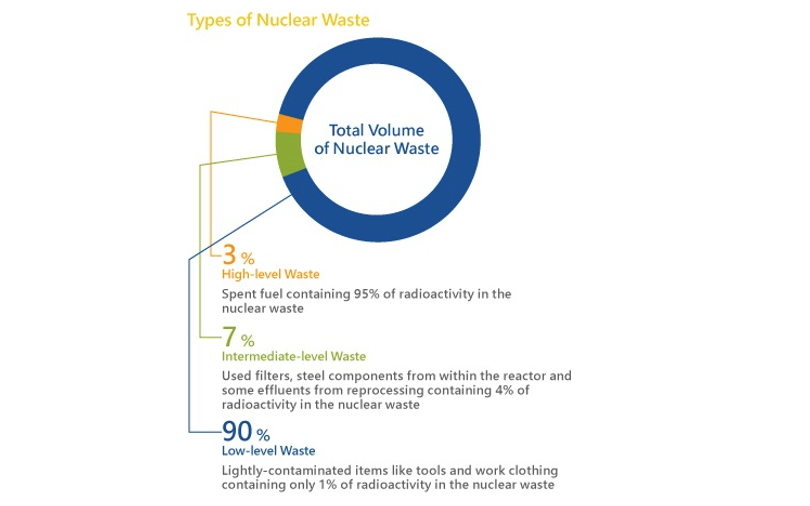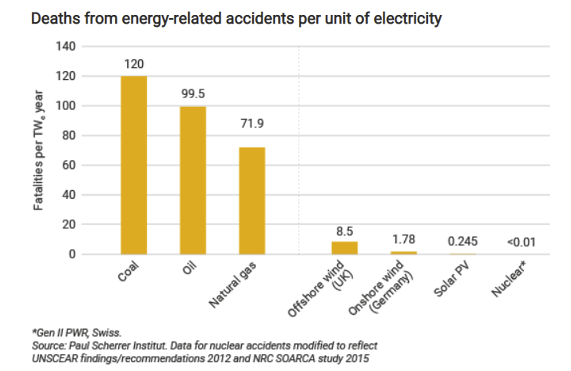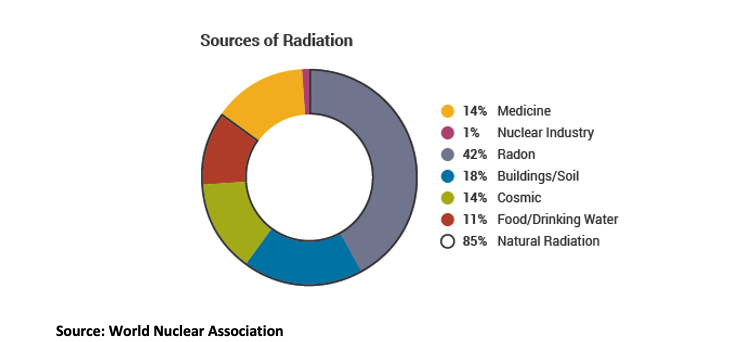Debunking the myths around nuclear energy

Betashares
Nuclear power is a low carbon energy source that can generate maximum power more reliably than any other energy source currently available. [1] In the aftermath of Chernobyl, some 36 years ago, much has been made of the risks that nuclear power entails, as well as the flow-on effects this could have on human health and the environment. Subsequent events, such as the Fukushima nuclear disaster, have meant that the advance and procurement of nuclear energy have been overtaken by renewable energy technologies that are perceived to be cleaner and safer. However, with the world facing the existential threat of climate change, nuclear energy has returned to global discourse as a viable option to help us reach ambitious climate goals.
Given the renewed optimism for nuclear energy, it is important to consider the genesis of safety concerns within the sector, and whether this energy source warrants reappraisal.
Nuclear waste
Nuclear energy is generally considered a clean form of energy, generating less than 1.5% of the carbon emissions generated by coal per KWH[2]. Nuclear reactors do not produce air pollution or carbon dioxide while operating, and nuclear power is comparable to both offshore and onshore wind in terms of its overall emissions impact. Generally, the argument against nuclear from an environmental viewpoint focuses on the problem of where to store nuclear waste – with the misconception that this waste takes up a large amount of space.
Nuclear fuel is very energy dense (one uranium fuel pellet creates as much energy as one ton of coal)[3], so comparatively it takes very little of it to produce scalable energy. As a result, only a small amount of waste is produced. Given this, the waste from a reactor supplying one person’s electricity for a year is around the size of a brick, and of this only 5 grams is high level waste – about the same weight as a sheet of paper[4]. As shown below, high level waste accounts for only 3% of total waste but 95% of the radioactivity. This waste is typically stored in highly secure, deep ground facilities.
Whilst there is no doubt that high level nuclear waste is dangerous to our health, we are more than capable of storing it safely. Given the amount of high-level waste produced in the US over the last 40 years would cover one football field to a height of seven metres,[5] the small volume of waste created contrasts heavily with the waste of coal and oil.

Deadly accidents and safety concerns
Many people associate nuclear energy with the nuclear disasters of Chernobyl and Fukushima without understanding the context around these incidents, or considering the wider energy market. Nuclear has by far the lowest number of direct fatalities of any major energy source per kWh of energy produced – over 100 times fewer than hydro and liquified natural gas,[6] and as shown below, nuclear ranks among the lowest sectors for energy-related accidents.

Nuclear accidents are rare, and the ongoing health impacts arguably have been overstated in contemporary discourse. The Chernobyl nuclear meltdown remains the only nuclear accident which has led to measurable health effects – 30 fatalities and up to 4000 thyroid cancer cases who were children at the time of the disaster.[7] By comparison, the Fukushima accident in Japan did not cause any immediate health issues and is unlikely to cause any further health effects according to the United Nations Scientific Committee on the Effects of Atomic Radiation.[8]
Apart from Chernobyl, no nuclear workers or members of the public have ever died due to exposure to radiation from a commercial nuclear reactor incident. The vast majority of serious radiological injuries and deaths that have occurred are the result of uncontrolled radiation sources, such as abandoned medical or industrial equipment.
A live nuclear power plant produces very small amounts of radioactive gases and liquids, as well as small amounts of direct radiation. A person living within 80 kilometres of a nuclear power plant will receive an average radiation dose of about 0.01 millirem per year.[9] To put this in perspective, the average person in the US is exposed to around 300 millirem per year from natural background sources of radiation.[10]

Summary
Whilst nuclear energy poses some inherent risks to the community, they are arguably no greater than those posed by the current major generators of global power – namely oil and gas. Whilst these risks must be taken into consideration, technological advancements are making nuclear reactors safer and more efficient than they ever have been.[11] There is a strong argument that the benefits of this highly dense energy source, as well as its very low carbon emissions, mean that nuclear power has an important role to play in tackling the energy and emissions challenges facing the planet.
The home of ETFs
Trusted by hundreds of thousands of Australian investors, BetaShares offers cost-effective, simple, and liquid access to the broadest range of ETF investment solutions available on the ASX, covering almost every asset class and investment strategy.
If you enjoyed this wire, don't forget to give it a 'like' or leave a comment. To be the first to read my insights, hit the follow button below.
3 topics

Blair is responsible for supporting the distribution of BetaShares funds to Advisers across Victoria, Tasmania and South Australia. Previously, Blair worked at Macquarie Bank in Distribution and Key Account roles within the Specialised Investments...

Blair is responsible for supporting the distribution of BetaShares funds to Advisers across Victoria, Tasmania and South Australia. Previously, Blair worked at Macquarie Bank in Distribution and Key Account roles within the Specialised Investments...
